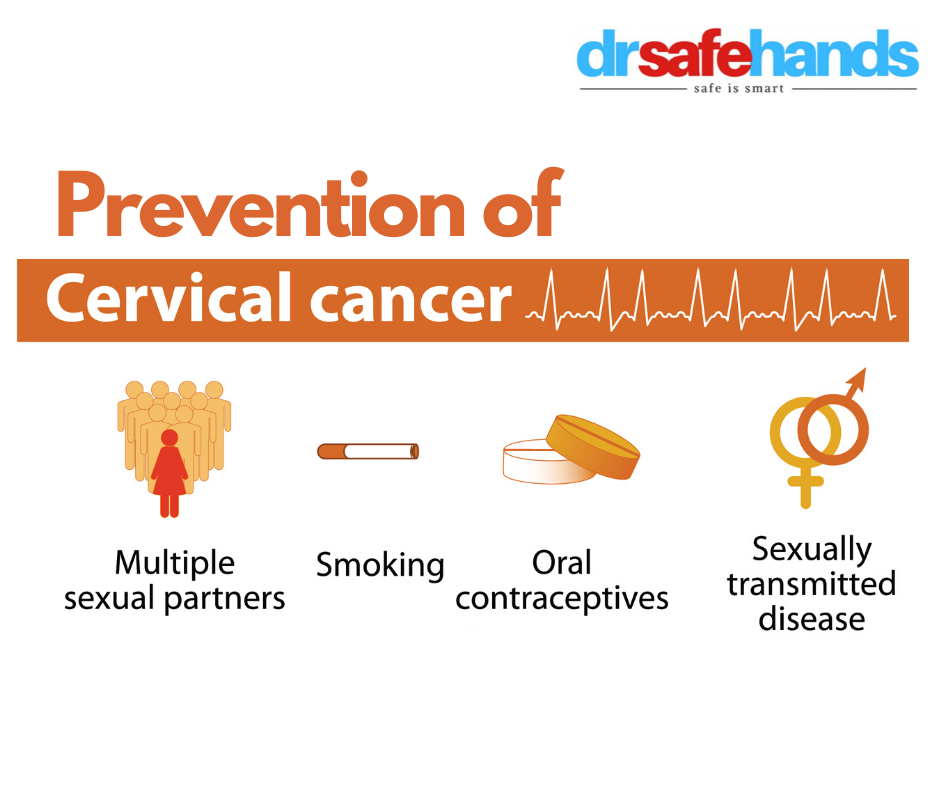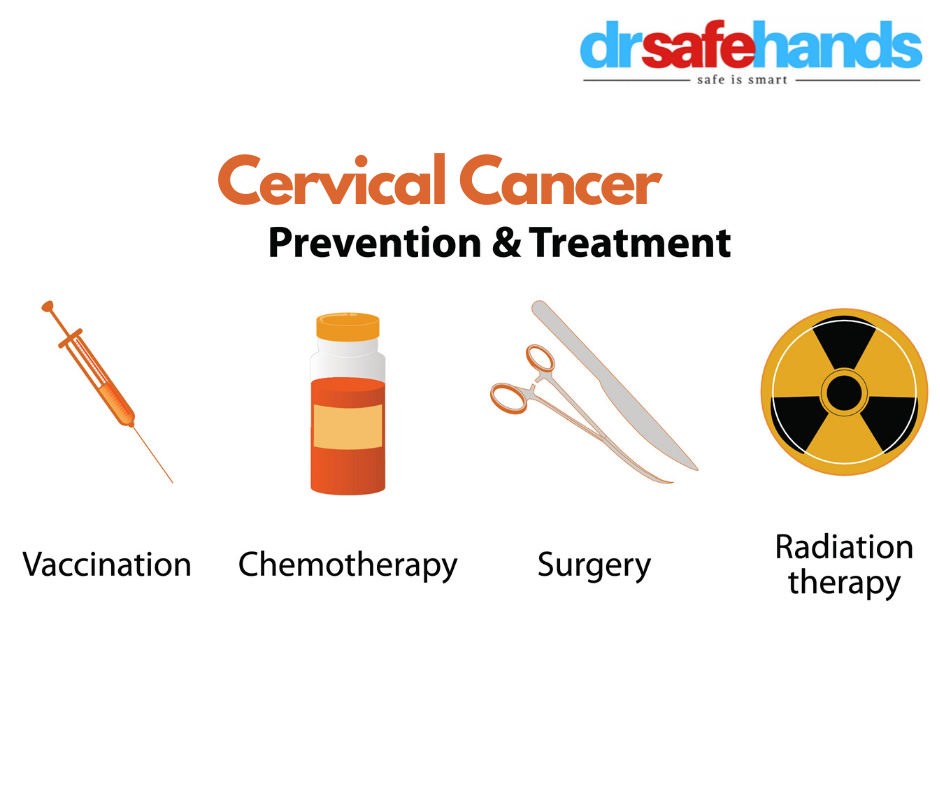How can I prevent Cervical Cancer?
There are several ways in which you can prevent Cervical cancer.
- Have Screening Tests: To find conditions that may lead to cancers and can find pre-cancers before they can turn into invasive cancer. The Pap test (or Pap smear) and the human papillomavirus (HPV) test are the most commonly used screening tests. If a pre-cancer is found it can be treated before it transforms into cervical cancer.
- Get an HPV vaccine: It protects young people (ages 11 or 12 years) against infection with the HPV subtypes most commonly linked to cancer, as well as some types that can cause anal and genital warts. It should be given before a person becomes exposed to HPV (such as through sexual activity). If not vaccinated already, everyone can get the vaccine through age 26 years. It’s important to know that vaccination at older ages is less effective in lowering cancer risk.
- Limit exposure to HPV: HPV is passed from one person to another during skin-to-skin contact with an infected area of the body. Limiting the number of sex partners and avoiding sex with people who have had many other sex partners may lower your risk of exposure to HPV. But again, HPV is very common, so having sexual activity with even one other person can put you at risk. Remember that someone can have HPV for years and still have no symptoms. So it's possible someone can have the virus and pass it on without knowing it.
- Use a condom: Condoms provide some protection against HPV, and they also help protect against HIV and some other sexually transmitted infections.
- Don't smoke: Smoking increases the risk of developing HPV infection that may lead to cervical cancer.
Why should I have a smear test?

The Pap test or smear is a procedure in which cells from the cervix are collected to find cancer and pre-cancer. Cervical Cancer is the only fully preventable cancer if detected at early stages. Smear tests detect abnormal cells that can likely develop into pre-cancer or cancer, and at this stage, it can be easily treated. It's important to know that most invasive cervical cancers are found in women who have not had regular Pap tests.
Original Source
Comments
Post a Comment